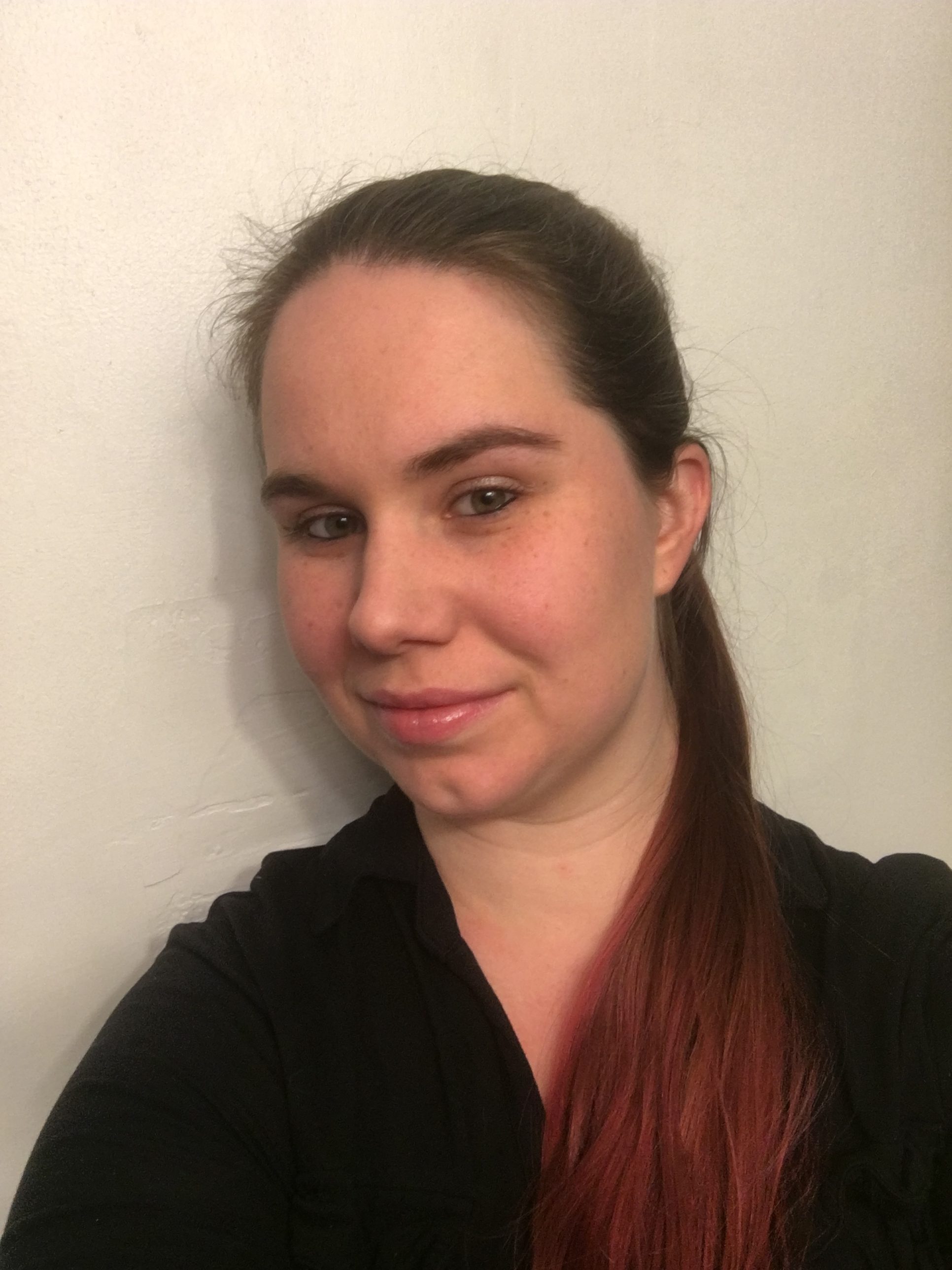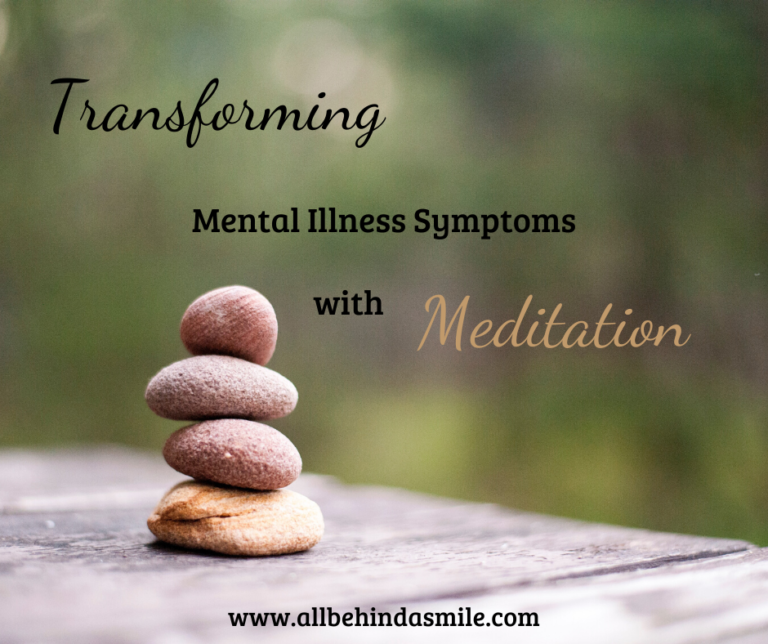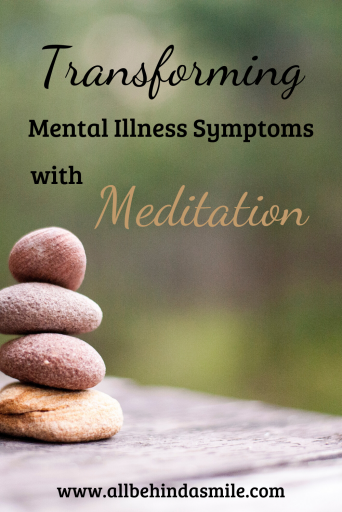
Christian, wife, “hybrid” mama, I run the site All Behind A Smile to help others like me.
Meditation is a wonderful tool for coping with mental illness.
That’s just a short list of some of the benefits I have personally found helpful from meditation.

Bonus: it’s all natural! No medications required.
(However, please do not discontinue or change any medications without first consulting your doctor.)
If I come to my husband with one of the above complaints, he tells me to go meditate – and it’s a great reminder of how helpful meditation can be. It’s easy to forget something that seems so simple.
Although I won’t tell you how to meditate – there are plenty of other apps and resources for that – I will tell you that when my brain is going approximately 1,000 miles a minute and each tiny little detail absorbs my full attention that meditation helps me “settle down” so to speak and focus on the whole picture.
When I’m feeling anxious and even a bit panicky, meditation is a major coping skill in my arsenal.
Too wired to sleep? Meditation to the rescue.
If meditation as a practice is not an option for you, there are many other coping skills available.
In Overwhelmed? 4 Steps for Managing – there are a few simple coping skills that do not include meditation. If you are trying to focus, then consider Creating an Experience for Focus – which does take longer than a coping skill to implement (repetition helps develop the experience) but works wonders in the focus department if you continue to hone the “skill” so to speak.
If you are looking for quick wins (and alternatives), then also consider taking ten or fifteen minutes to read a chapter or a few pages of a book. Although it may seem counter-intuitive to read when you really just want to do A, B, and C, reading has many benefits – and you could always choose an audiobook!
Unless the book is extremely engaging, you probably won’t get too invested in the allotted time, and forcing yourself to focus on a book can help direct your attention – perfect for if you are trying to focus but don’t want to meditate. If you choose something dry (like a textbook) to read, then the book can help you fall asleep faster. Feeling anxious? Reading to the rescue again. It will be quite difficult to focus on reading when you are anxious – but trying (operative word here) to read will probably be a great distraction from whatever is causing your anxiety. Just be aware you will probably have to re-read what you read again later.

I would be amiss in not addressing the question of religion and meditation.
There are those who are cautious or avoidant of meditation because of its religious associations – but meditation is only as religious as you want it to be. Much like yoga, you can practice the exercise without the religious connotations.
Although I usually do guided meditations using the free app Insight Timer (not affiliated in any way), I also simply use the timer itself for unguided meditations. As a Christian, this is where people seem to get concerned. They worry that when your mind is empty (can your mind ever truly be empty?) that evil can seep in.
I cannot tell each individual person what would be the best practice for them, so here is where you use your best judgement.
Each and every person is different, so definitely choose what feels most comfortable for you – and what aligns with your faith best. Just because two people share religious beliefs doesn’t mean they are comfortable with the same practices!
Do you use meditation as a coping skill, or do you prefer other options? Let me know in the comments below!

Christian, wife, “hybrid” mama, I run the site All Behind A Smile to help others like me.
This site uses Akismet to reduce spam. Learn how your comment data is processed.


[…] but in the developing better coping skills sense. You can read more about some coping skills I use HERE. Continuing to take my prescriptions as prescribed has been a huge part of that. I’ve learned […]